Related Research Articles

Draught beer, also spelt draft, is beer served from a cask or keg rather than from a bottle or can. Draught beer served from a pressurised keg is also known as keg beer.

A cart or dray is a vehicle designed for transport, using two wheels and normally pulled by one or a pair of draught animals. A handcart is pulled or pushed by one or more people.

Thomas Campion was an English composer, poet, and physician. He was born in London, educated at Cambridge, studied law in Gray's inn. He wrote over a hundred lute songs, masques for dancing, and an authoritative technical treatise on music.

Sorrell Booke was an American actor who performed on stage, screen, and television. He acted in more than 100 plays and 150 television shows, and is best known for his role as corrupt politician Jefferson Davis "Boss" Hogg in the television show The Dukes of Hazzard.
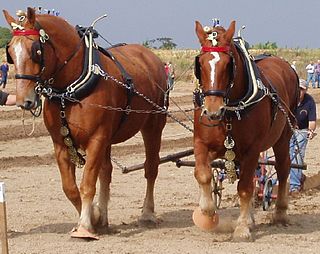
The Suffolk Horse, also historically known as the Suffolk Punch or Suffolk Sorrel, is an English breed of draught horse. The first part of the name is from the county of Suffolk in East Anglia, and the word "Punch" is an old English word for a short stout person. It is a heavy draught horse which is always chestnut in colour, traditionally spelled "chesnut". Suffolk Punches are known as good doers, and tend to have energetic gaits.

The Fitzwilliam Virginal Book is a primary source of keyboard music from the late Elizabethan and early Jacobean periods in England, i.e., the late Renaissance and very early Baroque. It takes its name from Viscount Fitzwilliam who bequeathed this manuscript collection to Cambridge University in 1816. It is now housed in the Fitzwilliam Museum at Cambridge. The word virginals does not necessarily denote any specific instrument and might refer to anything with a keyboard.
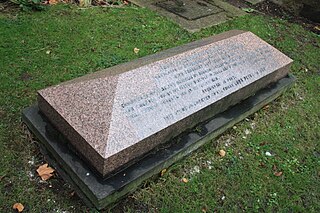
Alexander Geddes was a Scottish theologian and scholar. He translated a major part of the Old Testament of the Catholic Bible into English.

Janet "Jenny" Geddes was a Scottish market-trader in Edinburgh who is alleged to have thrown a stool at the head of the minister in St Giles' Cathedral in objection to the first public use of the Church of Scotland's 1637 edition of the Book of Common Prayer in Scotland. The act is reputed to have sparked the riot that led to the Wars of the Three Kingdoms, which included the English Civil War.
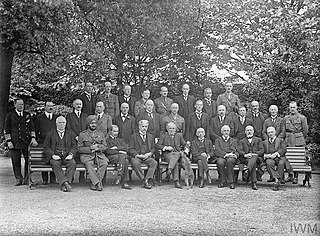
Liberal David Lloyd George formed a coalition government in the United Kingdom in December 1916, and was appointed Prime Minister of the United Kingdom by King George V. It replaced the earlier wartime coalition under H. H. Asquith, which had been held responsible for losses during the Great War. Those Liberals who continued to support Asquith served as the Official Opposition. The government continued in power after the end of the war in 1918, though Lloyd George was increasingly reliant on the Conservatives for support. After several scandals including allegations of the sale of honours, the Conservatives withdrew their support after a meeting at the Carlton Club in 1922, and Bonar Law formed a government.
Robert Jones was an English lutenist and composer, the most prolific of the English lute song composers.
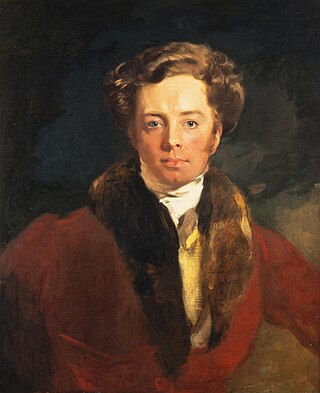
Andrew Geddes was a Scottish portrait painter and etcher.
John Geddes was the 47th Governor of South Carolina from 1818 to 1820.
The Labour Leader was a British socialist newspaper published for almost one hundred years. It was later renamed New Leader and Socialist Leader, before finally taking the name Labour Leader again.

Robert Radclyffe, 5th Earl of Sussex, KG was an English peer.
Edward Knott, real name Matthew Wilson (1582–1656) was an English Jesuit controversialist, twice provincial of the Society of Jesus in England.

Thomas Raynalde was an English physician, known as the translator or editor of Eucharius Rösslin's De Partu Hominis. The translation was published as The Byrth of Mankynde, otherwyse named The Womans Booke in 1545 and was highly successful, running to eleven or thirteen editions and remaining in use until 1654. A Compendious Declaration of the Excellent Vertues of a Certain Lateli Inventid Oile, published in 1551, is believed to have been written by the same person.
Henry Shaw (1800–1873) was an English architectural draughtsman, engraver, illuminator, and antiquary.
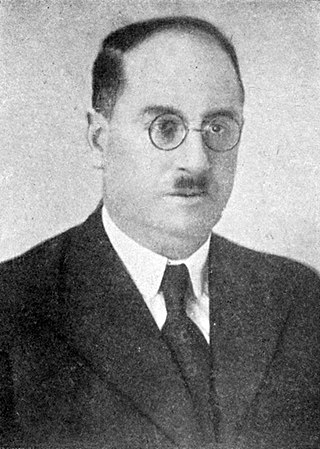
Dr. Rudolf Zistler or Cistler (1886–1960) was an Austro-Hungarian socialist and lawyer, most known for having defended members of Young Bosnia on trial for the assassination of Archduke Franz Ferdinand of Austria.

The Good Huswifes Jewell is an English cookery book by the cookery and housekeeping writer Thomas Dawson, first published in 1585. It includes recipes for medicines as well as food. To the spices found in Medieval English cooking, the book adds herbs, especially parsley and thyme. Sugar is used in many of the dishes, along with ingredients that are uncommon in modern cooking like violets and rosewater.

'The Geddes Burns' is a copy of Robert Burns's 1787 Poems, Chiefly in the Scottish Dialect with twenty-seven extra pages with twelve poems and songs in Burns's handwriting bound in, and a letter to Bishop John Geddes from the poet, written at Ellisland Farm.